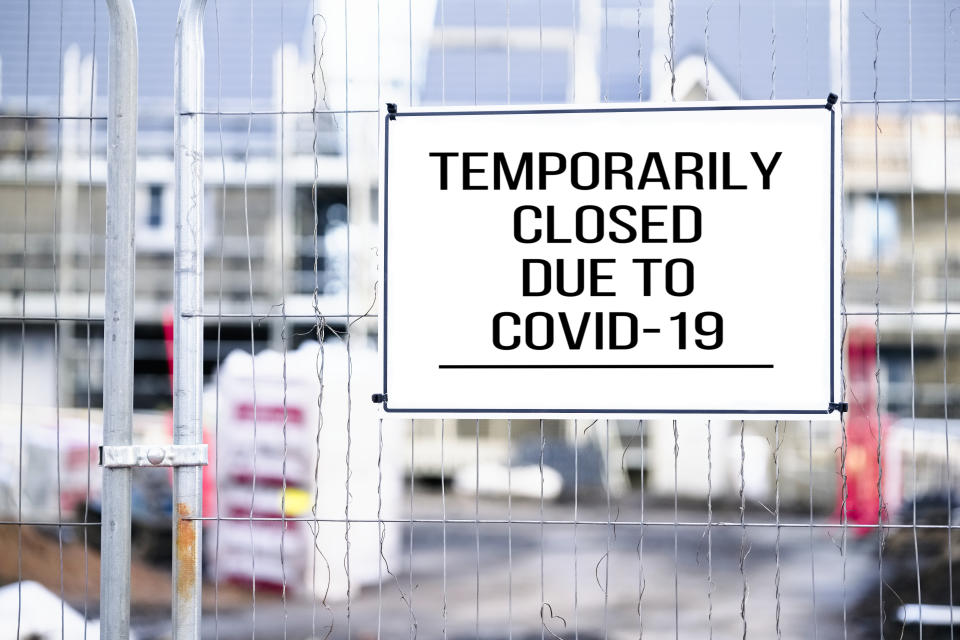UK small businesses urge more support as confidence hits record-lows

British small firms have renewed their calls for additional government support as confidence suffers a two-year losing streak.
It comes as chancellor Rishi Sunak on Thursday unveiled a string of new and improved financial support measures, including grants for businesses hit by local lockdowns and more generous wage top ups for part-time workers under the Job Support Scheme.
The Federation of Small Businesses (FSB), said that it welcomed Sunak’s enhancement of existing schemes last week.
But the FSB, which represents UK small firms has urged fresh interventions to help companies that have received no income support to date. It also seeks measures to reduce the costs of hiring, further alleviate the business rates burden and provide more resources for new start-ups.
Speaking on reducing the cost of employment, FSB national chairman Mike Cherry, said: “If we want small business owners to create jobs, we have to bring down the costs of employment, starting with Employer National Insurance Contributions.”
According to FSB’s Small Business Index (SBI), coronavirus-linked disruption has caused revenue growth to fall to its lowest recorded ebb.
The survey shows that 56% of 1,564 respondents reported a drop in revenues, while a 50% expect a fall in the next quarter.
UK SBI confidence in Q3 fell to -32.6, down 28 points on last quarter. Only a third (34%) of those surveyed at the end of September expect their performance to improve over the coming three months — 66% expect performance to worsen.
On investment, innovation and expansion, Cherry called for the easing of the “strain of wider government-imposed overheads,” including those stemming from an “outdated business rates system,“ saying those systems “stifle community businesses” across the UK.
READ MORE: Government accused of leaving self-employed 'in the lurch'
A record 25% of small firms revealed they reduced headcounts in Q2 at the height of the coronavirus lockdown. An even higher proportion (29%) expect to make redundancies over the next three months. Meanwhile, 12% said they expect to let at least a quarter of their staff go.
Cherry said: “Short memories are common in a crisis but we must not forget that small firms were already under the cosh thanks to political uncertainty, rising costs and creaking infrastructure well before the Spring.
“The chancellor made some very welcome adjustments to support measures last week, and it’s critical that the new Job Support Scheme is straightforward to use, the self-employed can access the help they require, and local authority cash grants reach as many of those in need as possible, as swiftly as possible.“
He also called for an “ambitious rescue package” to help the self-employed, company directors and “those further down supply chains” in the retail, leisure and hospitality sectors to weather current disruption.
READ MORE: Job Support Scheme could cost UK government £10bn
Additionally, as the final deadline for a breakthrough in UK-EU trade talks looms, 53% of exporters surveyed for the Q3 SBI report that international sales are falling. The figure is up 21 percentage points on Q3 2019 — 43% of firms expect a drop in exports over the coming three months.
Speaking on a clarity and a Brexit deal, he said: “Negotiators on both sides must pull out all the stops to secure a deal, one that includes a substantial small business chapter outlining how the new agreement will help the firms that make-up 99% of the UK business community,” Cherry said,
FSB also warned of a “scenario where businesses suddenly go from paying 0% to 100% of their business rates bills in April” as support measures continue through to Spring 2021.
Finally, he called on the government to abolish tax-free shopping for international visitors.
Cherry said if implemented the UK would be the “only country in the EU and OECD to spurn high-spending visitors, reducing revenues for businesses and the exchequer.”
He added that policymakers should “install a new online system for processing these tax-free purchases in order to provide working capital and shore-up balance sheets at a critical juncture for the economy.”
FSB’s survey covers a range of economic indicators including: small business confidence, employment and wages, exports, productivity, spare capacity, finance and investment.
A government spokesperson said: “Small businesses are the backbone of the UK economy and our support for them has been unwavering during the pandemic. Around 93% of eligible small businesses nationally have now received government grants totalling over £11bn, as part of a wider package of support for businesses worth £200bn.
“We’ve put in place a comprehensive plan to protect, support and create jobs in every region and nation of the UK, and recently expanded our winter support schemes, including our expanded Job Support Scheme which will protect jobs in businesses that are open or closed.
“We’ve also increased grants for firms required to close and are providing additional funding for local authorities and devolved administrations to support local businesses.”
Watch: Why tax rises may be inevitable in Britain

